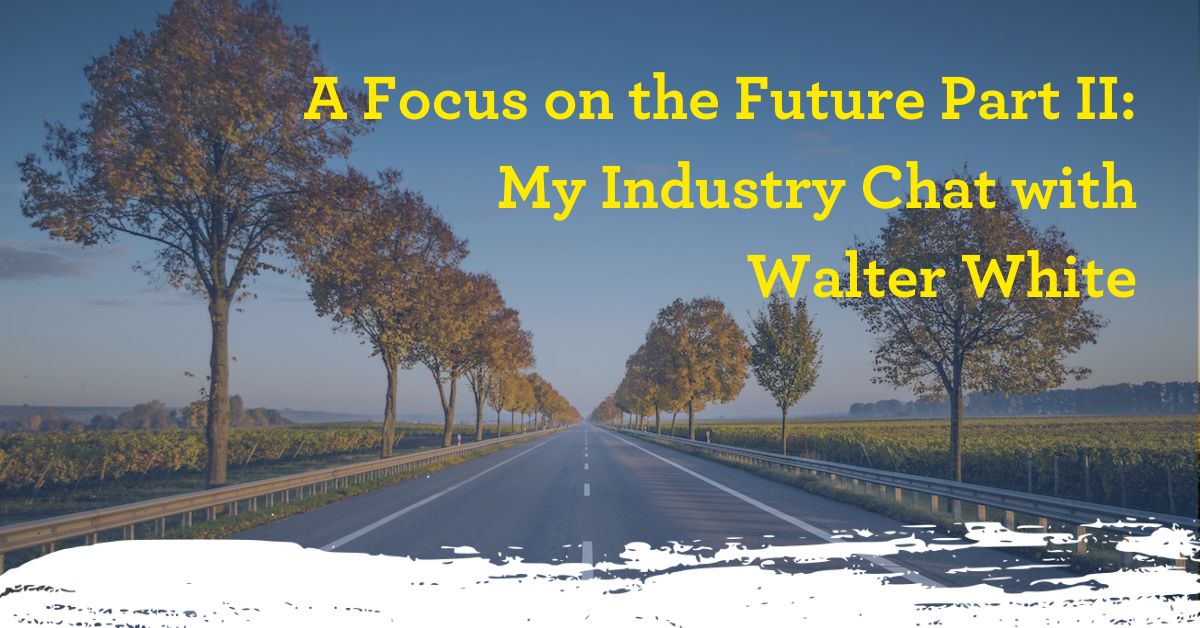Walter White, President and Chief Executive Officer of Allianz Life Insurance Company of North America, certainly has his pulse on the industry and the changes that are affecting the way we do business. In this second part of our recent discussion, Walter provides his thoughts on the growing need for financial advice, particularly among Baby Boomers and Millennials, and why this is a golden time to be a financial advisor.
As we look at aging and retirement today compared to what it was 50 years ago, how can financial advisors and insurance professionals help fill the gap?
With more more people retiring and preparing to enter retirement, there is a market opportunity that is inexorable. We need to find new ways of reaching them. Although I’ve never been a financial advisor, I’ve observed many great advisors over the years. In some ways, their challenges today are the same as always. Yes, the field of play has changed, but the things that make an advisor valuable continue.
While automation can provide some services, they’re relatively low value. So if you look at the so called robo-advisors, principally they are asset allocation tools, which is probably the least valuable service the financial advisor is providing, and there probably shouldn’t be a big fee attached to that. Put those tools in the hands of an experienced advisor, and let the advisor focus on the more sophisticated psychological planning issues. No robo-advisors are coming close to the life counseling that a good advisor provides. When should you be saving? When should you be more aggressive in your spending? Are you really thinking about income in retirement? Those wise choices are important. Getting people to make smart choices and take action, that’s where advisors really shine.
How else do advisors provide value today?
The fundamental services of an advisor are still really important. Advisors get people to take action. Little life insurance would be sold if advisors were not on the scene convincing people to take action. A good advisor is constantly pressing their clients to make wise choices and to take action on that basis. A further high priority is navigating complexity. Particularly to your point that someday products could be fully customized, that’s going to create a very complex world. And when it comes to decumulation, starting to tap your savings in various ways to generate income in retirement, that’s another set of decisions where an advisor’s contribution is critical.
What do you think is important for advisors looking to connect with Millennials?
Allianz has actually done research looking at generational differences and similarities with millennials. A few things stand out. Firstly, they are pretty good savers. Their actual savings rate, as a percentage of salary into vehicles like 401ks, can be higher than Gen X and higher even than Boomers.. They’re also often single-purpose savers. If you look at tech companies like Betterment, I think they are mining the mindset that, “I will save for a specific end in mind, like a vacation.” Those tools are really geared toward that.
Another thing we’ve observed is they’re very conservative investors, much like the generation before the Boomers who lived through the Depression. It’s really framed their thinking about spending and saving. Millennials went through the financial crisis and saw what that meant to older generations. So typically, they’re not investing as heavily in the stock market, and are a bit cynical about the market. Of course, for a young investor, that’s probably not the right choice, as you need to be taking more risk over a longer period of time and living with the ups and downs.
The last thing I’ll say, and I’ll use my own kids as an example, is they’re completely cynical about institutional offerings. If you ask them what are they going get from Social Security, they’ll say “zero,” which is an overstatement. But that’s their mindset–that they need to provide for themselves, which, in the end, perhaps will be very beneficial in their saving habits.
You had mentioned you weren’t a financial planner, but you’ve worked with many. What kind of advice would you give a new person in the business?
The first thing I’d say to a younger person is: “Get on a path of continuous learning.” If you’re not constantly studying in this profession, you will fall behind, because products are changing. Some of these generational needs that we’re talking about are changing and certainly technology is changing. So, you have to constantly take steps to learn new things. Every successful advisor I’ve ever seen has been working on expanding his or her learning.
Secondly, and this is probably true of financial planning or any other profession is: “Spend some time with an experienced advisor.” One of the raps our industry gets is that we’re not cultivating young advisors, and I think the only way to do that is to match up a younger advisor with someone who’s more experienced. I think they’ll quickly see all that goes into being a seasoned, successful advisor, including technical learning and learning how to build relationships. We’ve all seen advisors who get set in their ways and therefore find adopting new technology very disruptive and painful. If you build it in at the front end, it’ll be much easier going forward. Of course, this is an area where younger advisors are pretty comfortable.
Finally, I would say: “Above all, you’ve got to persevere.” I’ve never met a successful advisor (other than the rare case where somebody had built a career in some parallel industry and became an advisor after that) who was successful in the early years. It just takes time for success to build on itself and really see momentum. We have a market we know is going to grow because of demographics, yet competition is declining. So this really is a golden time to be a financial advisor.

